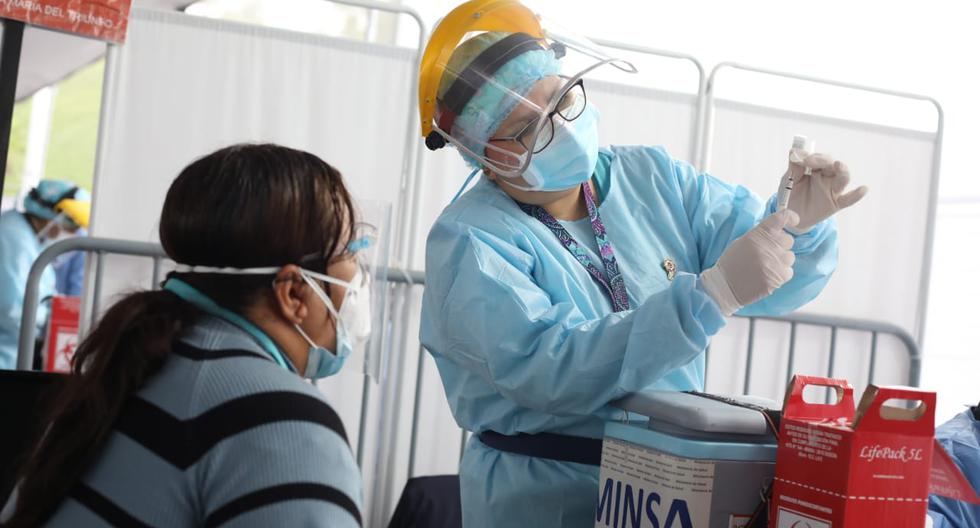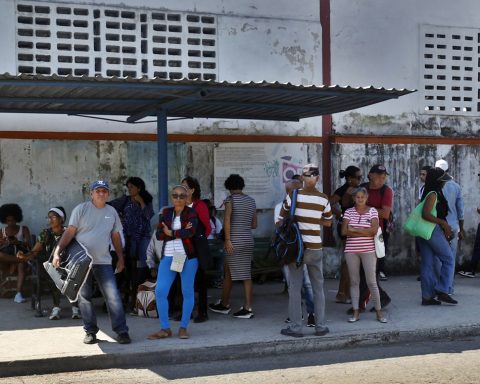The Peru faces the third wave of coronavirus and in the face of this, it has been reinforcing its process of immunization against COVID-19, applying the third dose three months after applying the second. However, at the national level there is a significant number of people who still do not get vaccinated and it is because they have doubts about the vaccine and their possible reactions.
MORE INFORMATION | Ten things you should know about ómicron, the new variant of COVID-19
For this reason, EsSalud has warned about situations in which vaccination against COVID-19 will require a prior medical evaluation. For a start, patients who have immune system problems such as AIDS, cancer or arthritisthey must have passed a medical evaluation before receiving the COVID-19 vaccine.
For what reason? According to the document “Clinical guidelines on vaccination against COVID-19 in the Social Security of Peru” last April, although “No exacerbation of the disease has been reported in people with immunosuppressive conditions and this would even be a group with an increased risk of severe COVID-19”vaccination in immunosuppressed people should be carried out taking into account some precautions.
In that sense, the “People with HIV should continue antiretroviral treatment before, during and after vaccination against COVID-19”. But, after vaccination you should “carry out active surveillance of the person and evaluation by the treating physician in the event of an inadequate response”.
PREGNANT WOMEN
According to studies conducted in various parts of the world, pregnant women have a higher risk of presenting a serious condition due to COVID-19so it is necessary to guarantee their protection through the application of the vaccine.
For this reason, in Peru the application of the vaccine against COVID-19 to women over 18 years of age who are 12 weeks pregnant.
But, since it is a care group, at the vaccination center, the pregnant woman must present her prenatal care card from the Ministry of Health (Minsa), EsSalud or a private sector establishment. In case the pregnant woman does not have this card, she must request it at any health establishment since in this document the details of her pregnancy will be recorded and it will be known if she is going normally or not.
MORE INFORMATION: Parosmia, the sequel to the coronavirus that alters the perception of smells and tastes
COAGULATION DISORDERS
In the case of those who have bleeding problems or are taking medications to prevent the formation of blood clots, the EsSalud guidelines indicate that precautions should be taken in the procedure to reduce the risk of possible bleeding.
And, despite the fact that events of this type have not been reported, it is important to have not only a prior medical evaluation but also a subsequent one because the main concern is precisely the risk of bleeding after vaccination.
ALLERGIC PATIENTS
The same is true if you have mild or moderate allergies or reactions to any food, medicine, poison, vaccine, or latex, or if you’ve ever had a serious reaction after receiving a vaccine. That is, prior medical evaluation will also be necessary.
According to the EsSalud document, Vaccination should not be contraindicated since the benefits continue to outweigh the potential risksbut it is necessary to follow certain precautions before administering the vaccine.
In this sense, it will be necessary to monitor people with this history for 30 minutes after vaccination with any of the available vaccines to identify any allergic reaction.
Prior medical evaluation will also be necessary when suffering from uncontrolled epilepsies and other progressive neurological disorders.
PRIORITIZATION OF VACCINES
And, if during the last 90 days you have received a transfusion of blood or blood products, or if in the last two weeks you have had a tuberculosis test or received another vaccine, a prior evaluation by a doctor will also be necessary. .
In the case of vaccines, EsSalud’s clinical guidelines indicate that “vaccination against COVID-19 must be prioritized”Therefore, vaccination against another pathology can be deferred unless it is mandatory as part of the immediate treatment in case, for example, people require the tetanus or rabies vaccine.


















